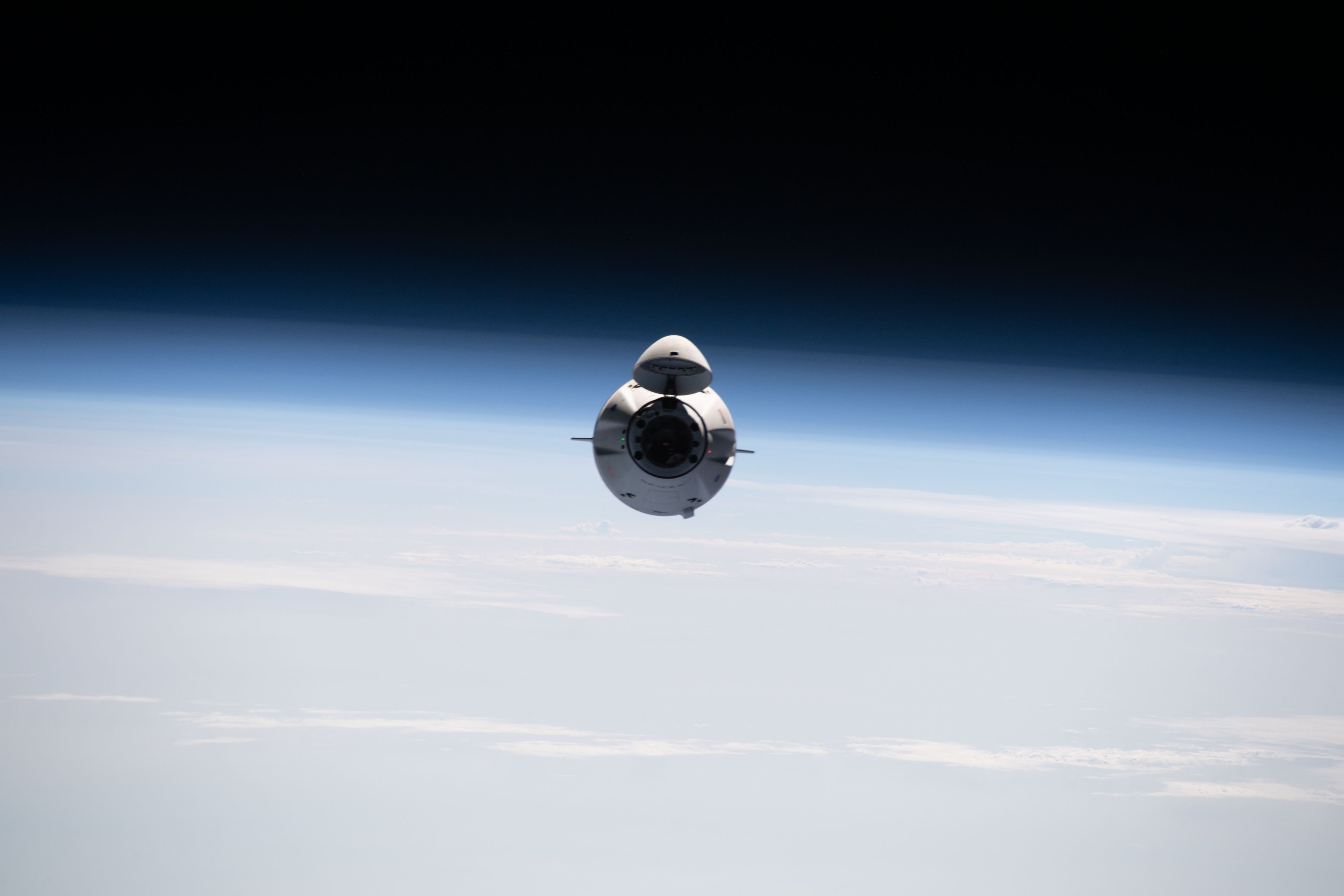Science News Roundup: SpaceX capsule heads to space station ferrying NASA crew and Russian; Nobel prize goes to pioneers of Lego-like "click chemistry" and more
Following is a summary of current science news briefs. A 'cataclysmic' celestial couple gone wrong - a star eats its mate Unlike the lonely sun, about half the stars in our Milky Way galaxy are in a long-term committed relationship with another star, orbiting each another in a celestial marriage called a binary system.

Following is a summary of current science news briefs.
A 'cataclysmic' celestial couple gone wrong - a star eats its mate
Unlike the lonely sun, about half the stars in our Milky Way galaxy are in a long-term committed relationship with another star, orbiting each another in a celestial marriage called a binary system. Researchers this week described one of these marriages gone wrong - a twosome that borders on the extreme, with the pair whirling around each other every 51 minutes in the fastest such orbital period known for a rare class of binary stars. As part of the drama, one star is eating its companion.
Rugby-Research shows huge spike in MND risk among former international players
A new study looking at the impact of concussion on a group of former Scottish international rugby players has found that they were 15 times more likely to develop motor neurone disease (MND) than the general population. The figure is likely to send shock waves through the sport, which is already embroiled in a legal fight over the link between concussion and early onset dementia and which is scrambling to find ways of reducing incidences of concussion in matches and training at all levels.
Puny critter shows humble beginnings of magnificent flying reptiles
Pterosaurs, the flying reptiles that thrived during the age of dinosaurs, achieved great size - some with wingspans like a fighter jet - and displayed striking anatomy including exotic head crests and a hugely elongated finger to support their wings. While the ancestry and early evolution of these creatures have long puzzled scientists, a fresh examination of remains found in Scotland of a small reptile that lived about 230 million years ago during the Triassic Period is helping shed light on the humble origins of pterosaurs, researchers said on Wednesday.
Nobel prize goes to pioneers of Lego-like "click chemistry"
Scientists Carolyn Bertozzi, Morten Meldal and Barry Sharpless won the 2022 Nobel Prize in Chemistry on Wednesday for discovering reactions that let molecules snap together to create new compounds and that offer insight into cell biology. The field of click chemistry and bioorthogonal chemistry has been harnessed to improve the targeting of cancer pharmaceuticals now being tested in clinical trials, along with a host of health, agricultural and industrial applications.
SpaceX capsule heads to space station ferrying NASA crew and Russian
A SpaceX rocket soared into orbit from Florida on Wednesday carrying the next long-term International Space Station crew, with a Russian cosmonaut, two Americans and a Japanese astronaut flying together in a demonstration of U.S.-Russian teamwork in space despite Ukraine war tensions. A high-ranking official of the Russian space agency Roscosmos said shortly after the launch that the flight marked "a new phase of our cooperation" with the U.S. space agency NASA.
(With inputs from agencies.)
ALSO READ
Greenland: U.S. Envoy Sparks Diplomatic Ripples
Tech Stocks Surge on AI Optimism as U.S. Market Awaits Key Economic Data
South African Recruits Trapped in Russian Mercenary Scam
Pope Leo's Transformative Legacy in U.S.: Recasting 'Pro-Life' Beyond Borders
Denmark's Sovereignty Underlined Amid U.S. Diplomatic Move










